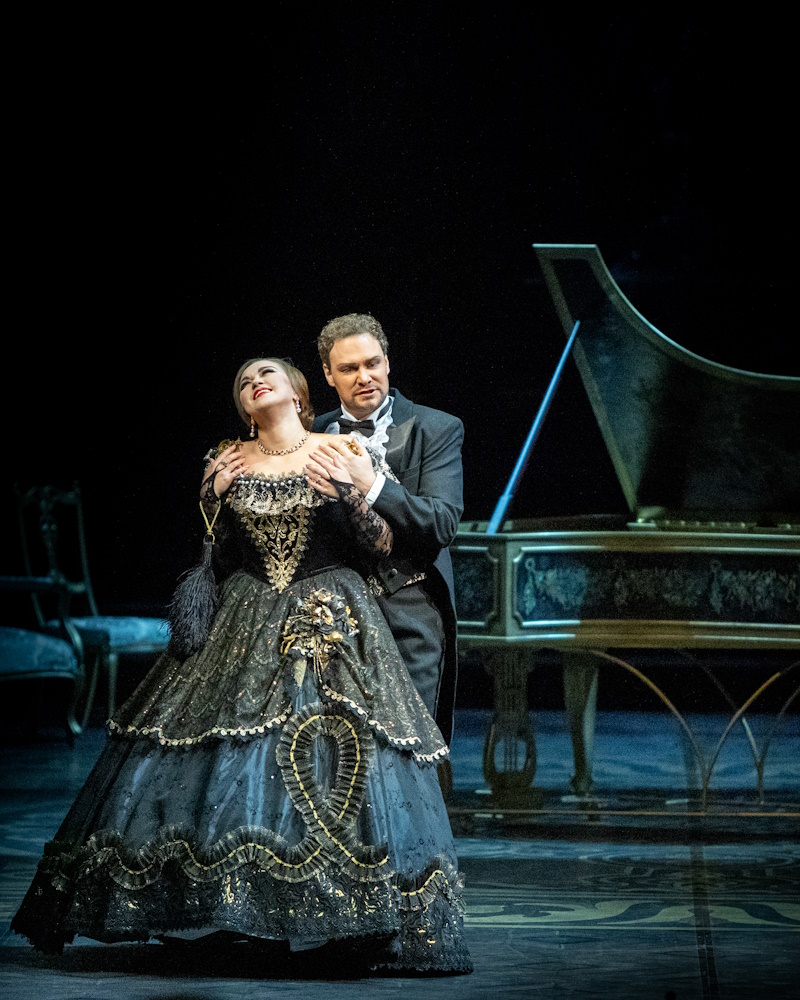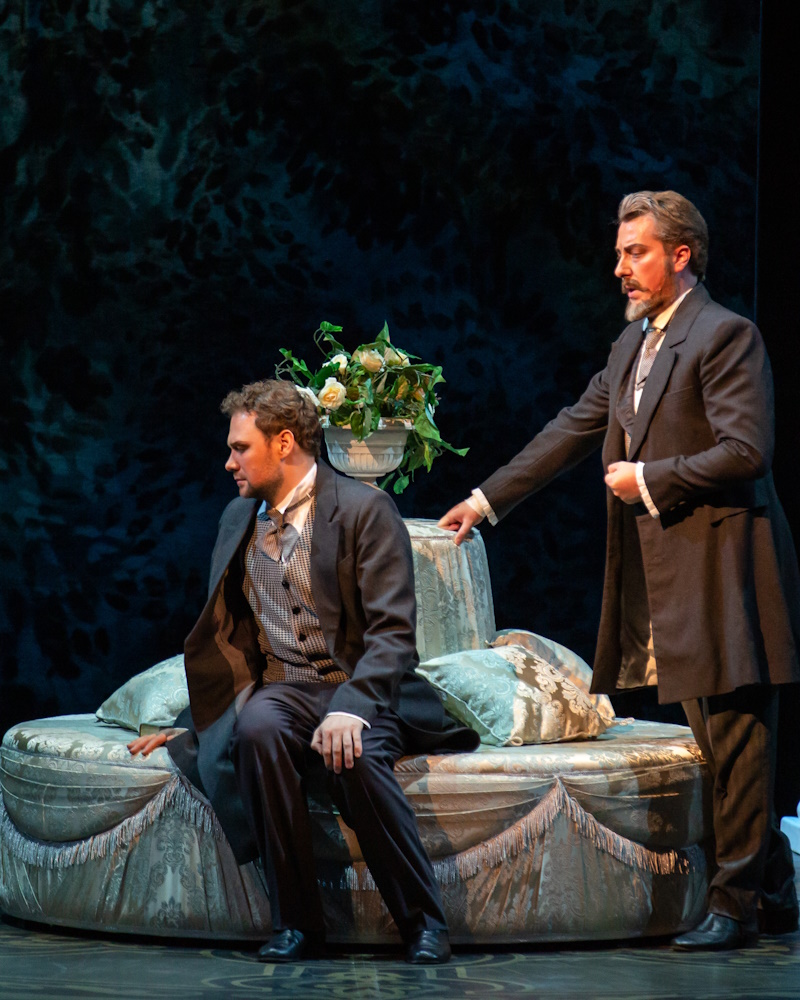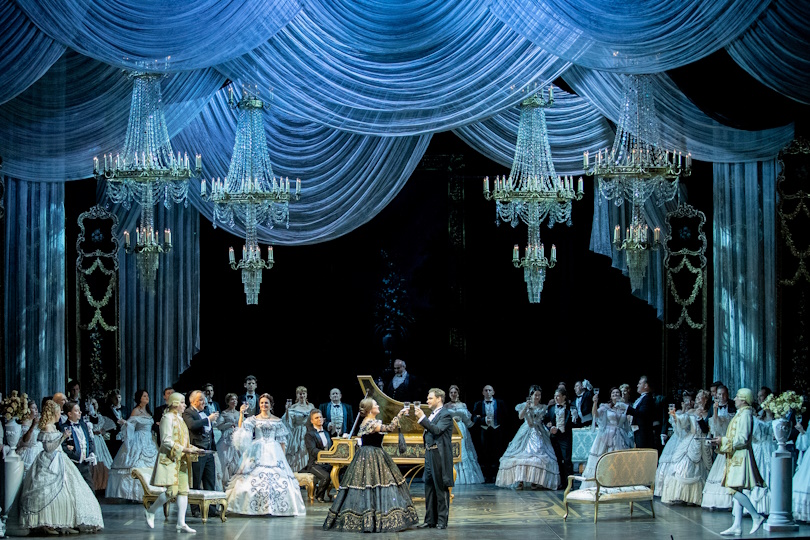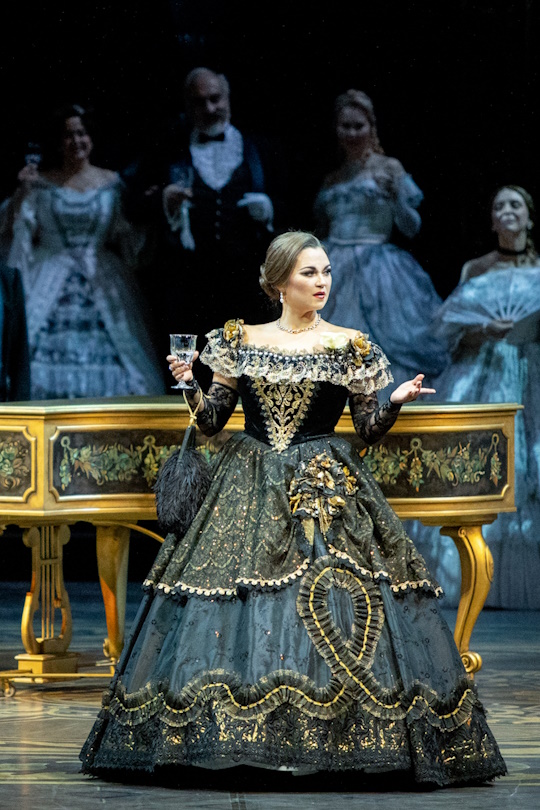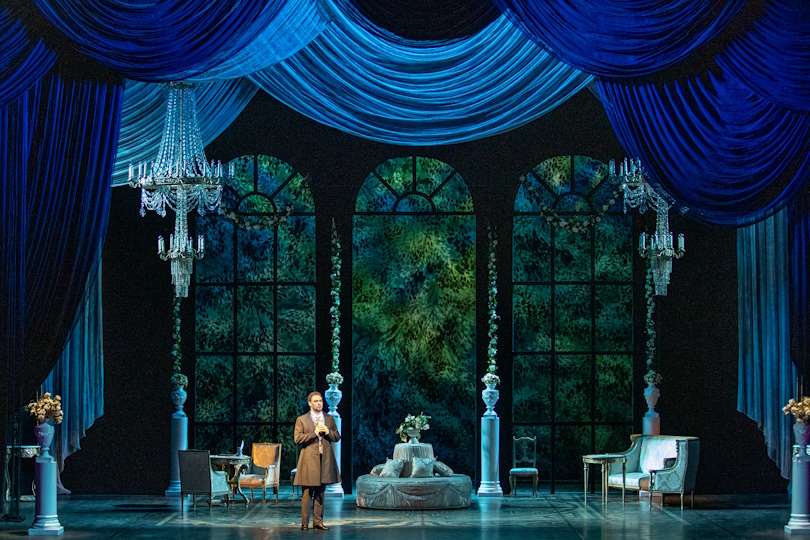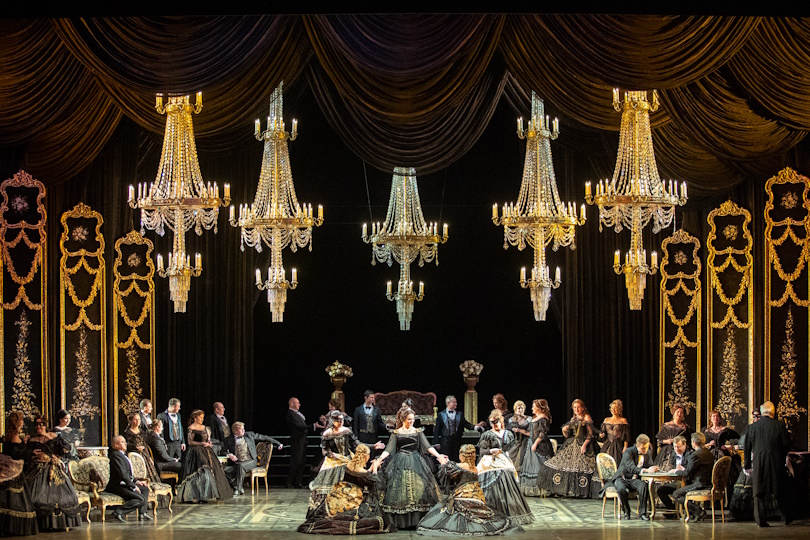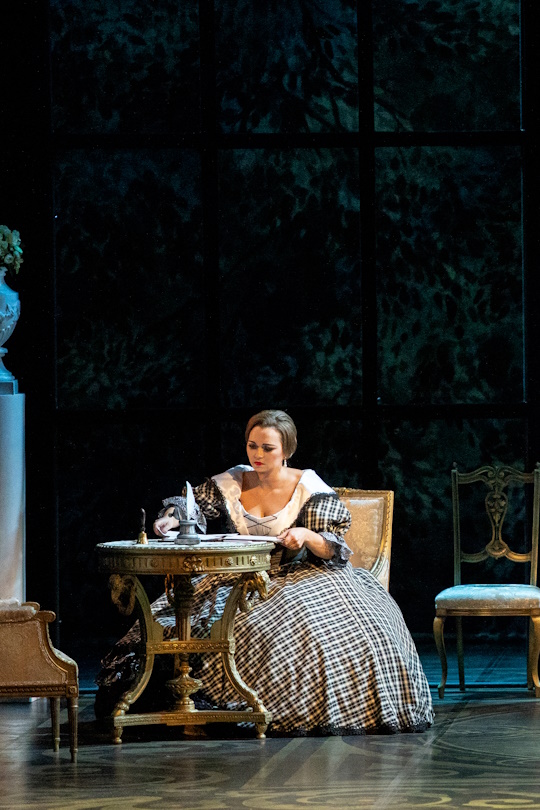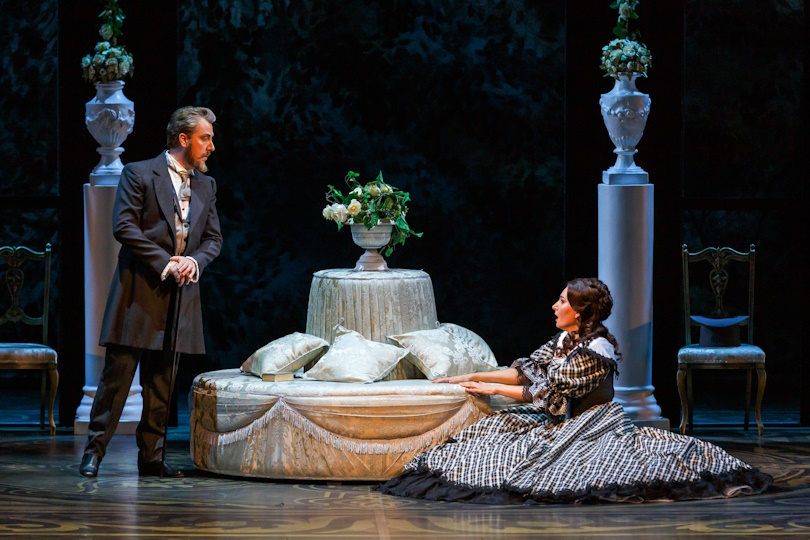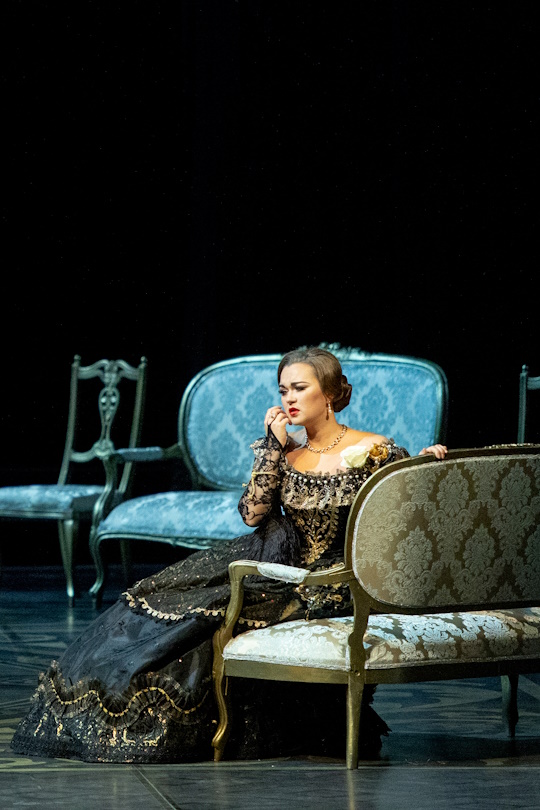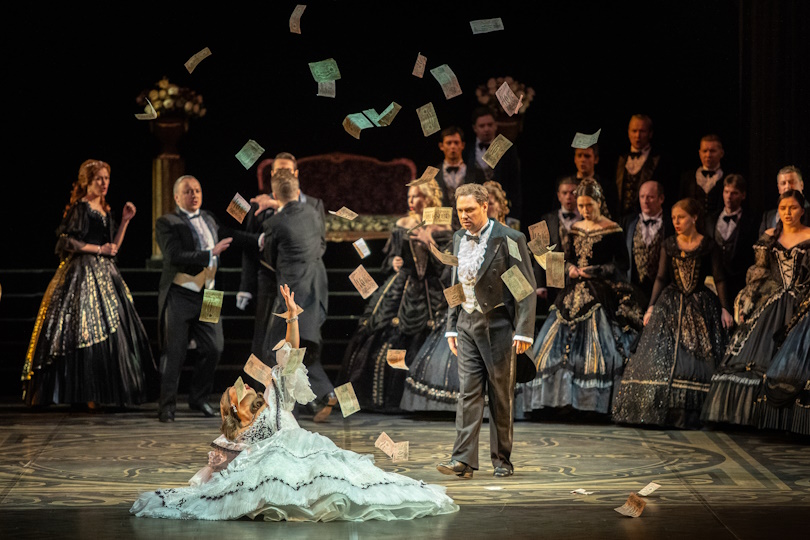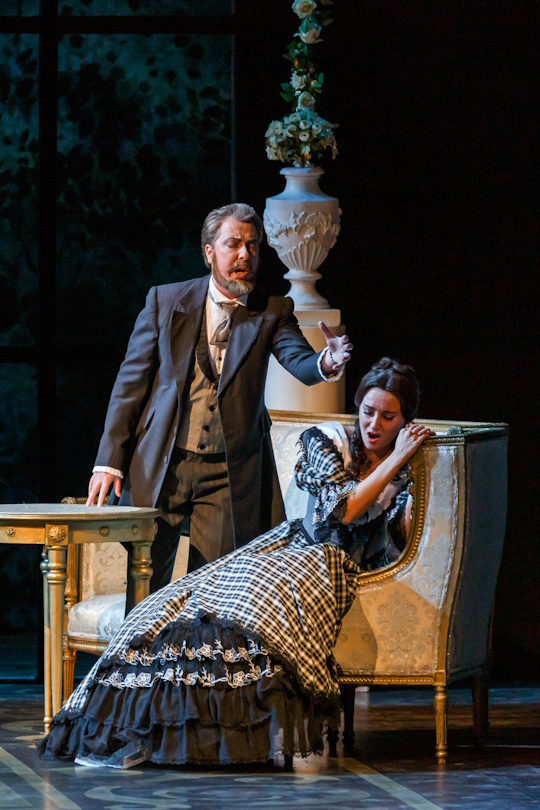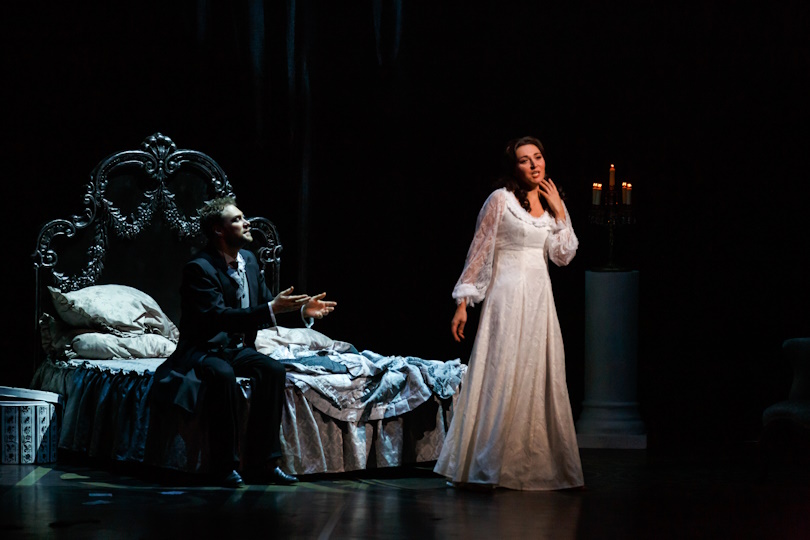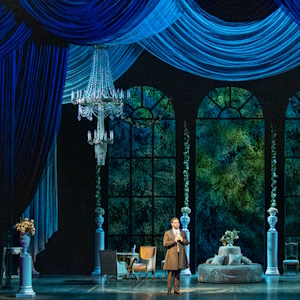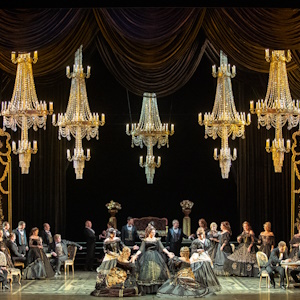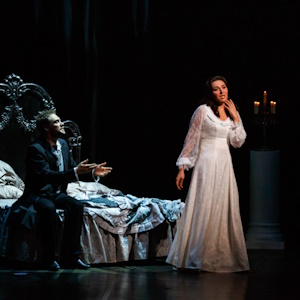La traviata
opera in two acts
music by Giuseppe Verdi
 performed in Italian (with Russian surtitles)
performed in Italian (with Russian surtitles)
It is no exaggeration to say that La traviata is the best known and most loved opera in the world. A connoisseur of human emotion, Verdi’s music so precisely conveys the many shades of emotion, that the feelings seep unimpeded into the heart of the listener, forcing one to live through the story along with the heroine.
La traviata is based on the famous novel The Lady of the Camellias by Alexandre Dumas, fils. Contemporaries claimed that the novel was a fictionalized account of the real story of the author’s relationship with Marie Duplessis. With her intelligence and beauty, the young courtesan conquered Parisian high society as well as the young Dumas himself, who was drawn to her for her sincerity and the beauty of her soul. And though the word ‘traviata’ means, in translation from the Italian, ‘fallen woman’, the opera La traviata is a story about how a person is elevated by love. This contrast serves as a foothold in the whirlpool of feelings which immerses the audience in this wonderful performance.
Act one
Violetta Valery, a courtesan, throws a lavish party at her salon to celebrate her recovery from an illness. A guest of hers, Alfredo Germont, falls in love with Violetta at first sight. On guests’ request, Alfredo gives a toast — a drinking song. From the next room, the orchestra begins to play and the guests move there to dance waltz. Violetta feels dizzy and Alfredo stays with her. He convinces her to change her lifestyle and declares his love for her.
At first, Violetta rejects him with jokes, but at the end, when Alfredo is about to leave, she gives him a flower and promises a date. As the guests leave, Violetta recollects Alfredo’s declarations: she has fallen in love for the first time in her life.
Alfredo and Violetta live together in a country house outside Paris. They are happy in the peaceful countryside. Annina, the maid, interrupts Alfredo’s dreaming announcing that Violetta sells everything she owns to support their country life. Alfredo is shocked to learn this and leaves for Paris immediately to settle matters himself.
Violetta is looking through the letters: she has received an invitation from her friend, Flora, inviting her to a ball in Paris. Violetta indifferently lays it aside.
Alfredo’s father, Giorgio Germont, arrives. He accuses Violetta of destroying his son’s life and reputation. Violetta is desperate: her love to Alfredo is her only happiness. Her life is very short; she is death-sick. She finally agrees to leave Alfredo. Violetta writes a farewell letter to Alfredo. Alfredo returns to find weeping Violetta, and after her leaving he finds the letter. Giorgio asks his son to come back to his family in Provence, but Alfredo would not listen: he has noticed Flora’s invitation to the ball. Now he is sure that Violetta has left him forever. Jealous Alfredo rushes to Paris.
Act two
A party at Flora’s house. Alfredo is playing cards among other guests. Violetta arrives with Baron Douphol. Flora is happy to see her, but Violetta feels terrible at the ball: she is concerned about Alfredo. He picks a quarrel with Baron. Violetta is worried; she tries to prevent a duel. But Alfredo humiliates Violetta in front of the guests and then throws his money at her for her “services” while they lived together.
Violetta, whose tuberculosis has worsened, is fading. She has been left by all the friends. Dr. Grenville is trying to encourage her, but Violetta knows she is going to die. She asks the maid to distribute the money to the poor and stays alone to read Giorgio Germont’s letter: he announces the soon arrival of Alfredo. Now Alfredo knows everything: Giorgio has told him about Violetta’s sacrifice.
Annina rushes in the room to tell Violetta of the arrival of Alfredo. The lovers are reunited. Alfredo suggests that they leave Paris and start a new life together. But it is too late; Violetta knows her time is up, though she doesn’t want to die at the moment. The old Germont understands that his consent to their marriage is belated to save Violetta. Violetta dashes to Alfredo and dies in his arms.
Premiere of the production: 24 February 1995
Libretto by Francesco Maria Piave after the play La dame aux Camélias by Alexandre Dumas fils
- Stage DirectorStanislav Gaudasinsky
- Stage DesignerVyacheslav Okunev
- Lighting DesignerMikhail Mekler
- DirectorMargarita Kunitsyna-Tankevich
- ChoreographyStanislav Gaudasinsky, Evgeny Myasishchev
- Principal PianistMaria Kopyseva
- Chorus MastersAlexey Dmitriev, Sergey Tsyplenkov
Sets and costumes produced at the Vozrozhdenie Theatrical Design Studios
Sets and costumes produced at the Vozrozhdenie Theatrical Design Studios


